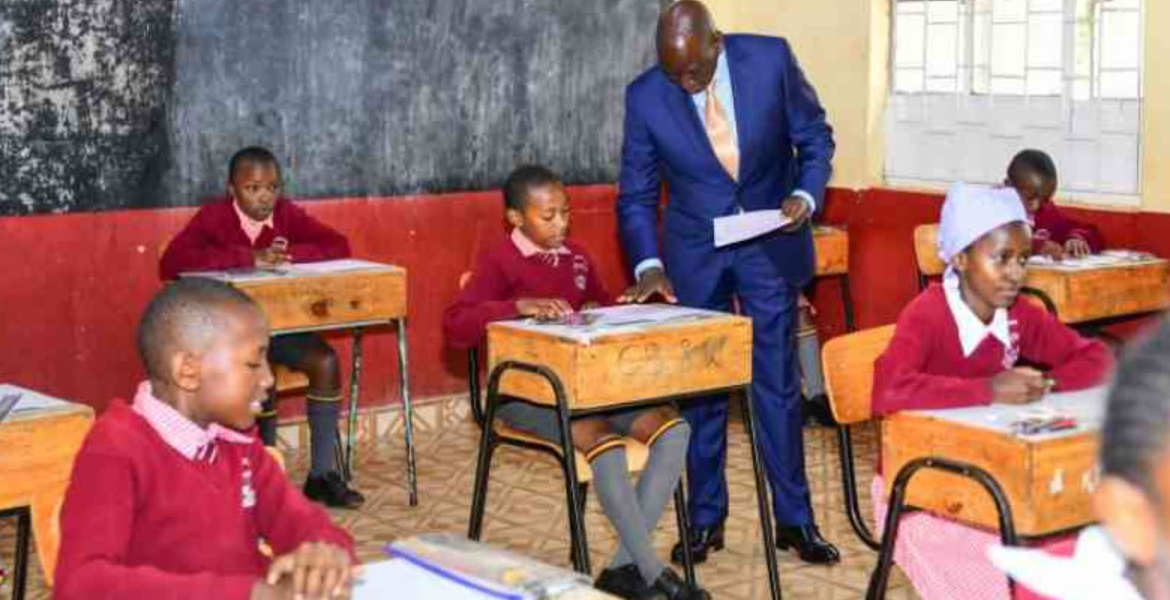Parents to Pay Exam Fees Again as Ruto Ends Universal Waiver

The Kenyan government will reinstate examination fees for parents, ending a decade-long universal waiver implemented in 2015 under former President Uhuru Kenyatta.
The new system, slated to take effect next year, will employ a means-testing model to determine which students qualify for government assistance. The policy shift, signalling a move towards fiscal prudence, will impact national examination,s including the Kenya Certificate of Secondary Education (KCSE), the Kenya Junior School Education Assessment (KJSEA), and the Kenya Primary School Education Assessment (KPSEA), all administered by the Kenya National Examinations Council (Knec).
Under the revised framework, only students identified as financially disadvantaged will receive government subsidies. National Treasury and Economic Planning Cabinet Secretary John Mbadi articulates the rationale behind the change, emphasising that the revised policy aims to ensure government subsidies are targeted at the most needy learners.
"The Ministry of Education must establish clear criteria to identify which parents can afford examination fees and which cannot," Mbadi stated, questioning the rationale for taxpayer funding of students in expensive private schools with high tuition fees.
The decision marks a departure from the previous system, where all students in both public and private institutions sat for national examinations at no cost. Prior to the 2015 waiver, candidates were required to pay KSh800 for the now-defunct Kenya Certificate of Primary Education (KCPE) exam, while KCSE candidates incurred a base fee of KSh2,700, with an additional KSh400 charged per subject.
The government initially allocated KSh4 billion in 2015 to fund the examination fees, which increased to KSh5 billion in recent years.
However, the rapidly growing number of examination candidates has placed a significant financial strain on the education sector. Budgetary constraints have reportedly led to challenges in compensating contracted officials during examination periods, prompting a reassessment of the expenditure model.
The 100 percent transition policy, introduced alongside the examination waiver, was intended to alleviate financial burdens on families and improve access to education.
The government's intervention provided critical financial relief for many households, particularly in light of rising living costs. Mbadi defends the policy change as necessary for financial sustainability, arguing that universal subsidies are no longer viable. "We have to review the cost and ask ourselves—why should we pay examination fees for every student, including those in private schools? Subsidies should target those who genuinely cannot afford it," he asserted.
The government’s move has elicited mixed reactions from stakeholders. National Parents Association chairperson Silas Obuhatsa cautions against an abrupt transition to a means-testing model, emphasising the need for public participation.
"Public participation should be prioritised in such critical decisions. Parents must be given a chance to voice their concerns," Obuhatsa stated.
Obuhatsa draws parallels to the higher education funding model introduced in 2023, which categorises students into four tiers—vulnerable, extremely needy, needy, and less needy—each receiving varying degrees of financial support. He notes that the higher education system has faced implementation challenges, including delayed disbursements and difficulties in determining eligibility, leaving many students struggling for funds. Obuhatsa fears similar complications could arise at the basic education level, particularly for students attending private schools under sponsorships.
"How will the government accurately determine which families can or cannot afford exam fees? Even in private institutions, some students rely on financial aid," he noted. "If this plan is rushed, many families may struggle to keep their children in school, which could result in increased dropout rates."
The shift towards targeted subsidies is part of a broader trend in government policy aimed at streamlining public expenditure. Officials argue that prioritising support for disadvantaged students will ensure resources are directed where they are most needed. However, concerns persist regarding the practicality of such an approach, given the complexities of defining financial hardship and ensuring equitable access to education.
The issue is particularly pressing as Kenya prepares for an unprecedented rise in the number of examination candidates. According to projections from the Ministry of Education, over three million learners will sit for national assessments in 2026, further straining available resources. Knec CEO Dr. David Njeng’ere has advocated for a per capita funding model to replace the blanket grants issued to the examination council, arguing that individualised payments would mitigate financial shortfalls.
"Before 2015, candidates paid their own fees, and we didn’t face these challenges," Njeng’ere explained. "Now, four months before the exams, we still don’t have the necessary funds."








Add new comment